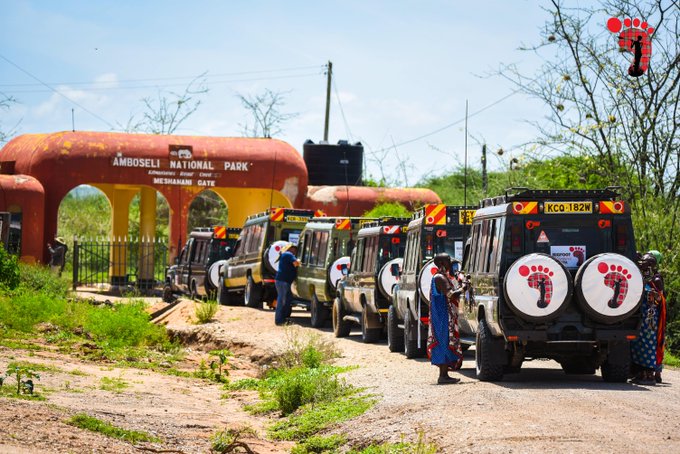Photo courtesy
The Kenya Association of Travel Agents (KATA) and various other associations under the umbrella body Kenya Tourism Federation (KTF) have come together through a webinar to discuss measures of business survival during and after the COVID-19 crisis.
The associations explored the continuous devastating impact on the industry in finance, human resource and business continuity and ways of emerging from the crisis stronger.
KTF Chairman Mohammed Hersi noted that the longer the disease lasts, the longer it will take to revive the industry and the economy at large.
Chief Administrative Secretary (CAS) for Tourism and Wildlife Joseph Boinett, who was also in attendance, urged the travel and tourism industry players to pull together as the world seeks ways of getting rid of the highly contagious virus. “The post COVID-19 world will be new and different,” he pointed out.
KATA Chief Executive Officer Agnes Mucuha pointed out that Kenya’s travel industry has lost 5.5 billion Kenya shillings year on year compared for January to April period, representing a 42{d59e984f9fbc5c09e4ab0305e27bfa5819922b7230cd324f89a660f78358ca33} loss of sales.
“Travel is hedged on aviation, and for it to perform, international borders need to open up, a Covid health certificate must be in place, and a vaccination against the Covid virus strain will be crucial to the resumption of international travel,” she said.
This, she added, is the reason why the aviation and travel industry has a bleak future as no revenue is streaming in.
Since the first case was reported in March, several measures have been put in place by the government to contain the spread of the highly contagious disease, among them restricted movements among counties, a dusk to dawn curfew and no flights in and out of the country, measures that have been extended for another 21 days.
These measures though very necessary in preventing the rapid spread of the virus have affected businesses through loss of sales and revenue, leading to some companies having to reduce the number of staff and even closing down.
“Some airlines like South African Airways and Virgin Australia are going through insolvency. If airlines do not receive support from their national governments, they will go bankrupt,” Mucuha said.
She called upon government and corporates to pay up pending bills owed to travel agents to allow their businesses to survive the crisis. The government owes the travel industry over 400 million Kenya shillings for ticket sales over the past two fiscal years.
“There are some companies that will not survive the Coronavirus pandemic. The government needs to support these businesses. Instead of closing shop, these businesses can partner or form mergers for survival and later make a comeback post COVID-19, “she advised.
Travel agents, she continued, may have to rethink their business strategy and cease extending credit in future for business sustainability.
Chief Administrative Secretary (CAS) for Tourism and Wildlife Joseph Boinett, assured the travel industry that the government is processing the payments for the pending bills owed, and that the payments shall be settled soon.
On human resource matters, the Kenya Association of Hotel Keepers and Caterers (KAHC) CEO Mike Macharia discussed the options businesses have with their staff which are within the law. They include paid and unpaid leaves, and pay reductions, all of which, he emphasized, have to be agreed on by the employer and employee.
